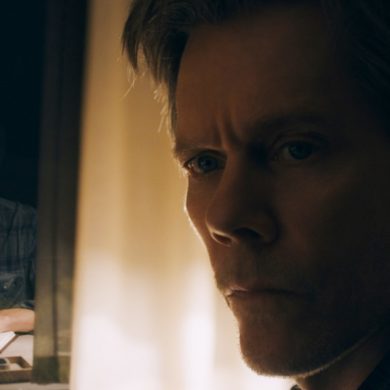Love, faith and civil rights clash in a southern town as evangelical christians and drag queens come together to crush stereotypes and negotiate the differences between religion and belief through performance in the form of political action and partnership, gospel drag shows and passion plays. This personal, heartwarming story will make you laugh out loud, cry and shine some hope at the end of this rainbow as it makes it world debut at SXSW.
The town of Eureka Springs, Arkansas has a long history of tall tales and crazy characters but what some may not know is how diverse this little town in the south really is. Directors Michael Palmieri and Donal Mosher went down there to show how a community operates based on a mantra of love and acceptance. Everyone in this film is lovable., some may seem a little more absurd than others at time but it’s easy to love them all. From the drag queens to the evangelical christians is easy to see how much respect they seem to have for one another.
People migrated to Eureka Springs because of the so called healing powers the springs in the town held. Most people never left. Eureka has a population that is 44% LGBTQ, yet it is considered the biker and christian capitol of Arkansas. So how does such an eclectic group find a way to to put differences aside and live amongst one another? The answer is acceptance.

In 2015 directors Palmieri and Mosher were asked to go to Eureka Springs, Arkansas to cover an Ordinance 2223 which was to be voted on that that, ‘“sought to protect and safeguard the right and opportunity of all persons to be free from unfair and discrimination based on real or perceived race, ethnicity, national origin, age, gender, gender identity, gender expression, familial status, marital status, socioeconomic background, religion, sexual, orientation, disability and veteran status.” While there, the two men fell in love with the people of Eureka and just knew they needed to tell their story.
This documentary more than anything is about freedom of expression and freedom to be yourself. Footage of the passion play put on by members of the community is juxtaposed by gospel drag shows put on at the local hot spot Eureka Live. These are two entirely different groups of individuals expressing themselves in their own way over the same common theme, Jesus Christ.
One of the best things about this film is how true and authentic it is. Palmer and Mosher really portray everyone as their authentic selves. Even though some of the lifestyles may be different than others there is this overwhelming sense of love, light and acceptance among the members of the community that you can feel.

This film is hilarious at times. I laughed so hard I thought I might cause a scene, and then some scenes would bring a tear to my eye. The Gospel of Eureka just makes you feel in a really humanistic way. As one of the lovely queens said, “ We just need to learn to get over ourselves. We are all the same. If you cut my arm I bleed the same as you. If we could just learn to look past each other’s differences it would be a much better world to live in.” The underlying theme is just love. Love and acceptance is key.
This film is beautifully done set to an original score created by the directors and some friends that really brings out the emotion of the film. If you are looking for a good laugh and a good cry this is for you. This is one of those films that would be good to watch with a group of people with very different views on religion and lifestyles to bring about a healthy discussion on what it truly means to coexist.
We need more documentaries in the world like this. More about the of love and acceptance to show that we are all just doing the best we can to make it in this world and if we are kinder to one another it will make that journey just a little bit smoother.



